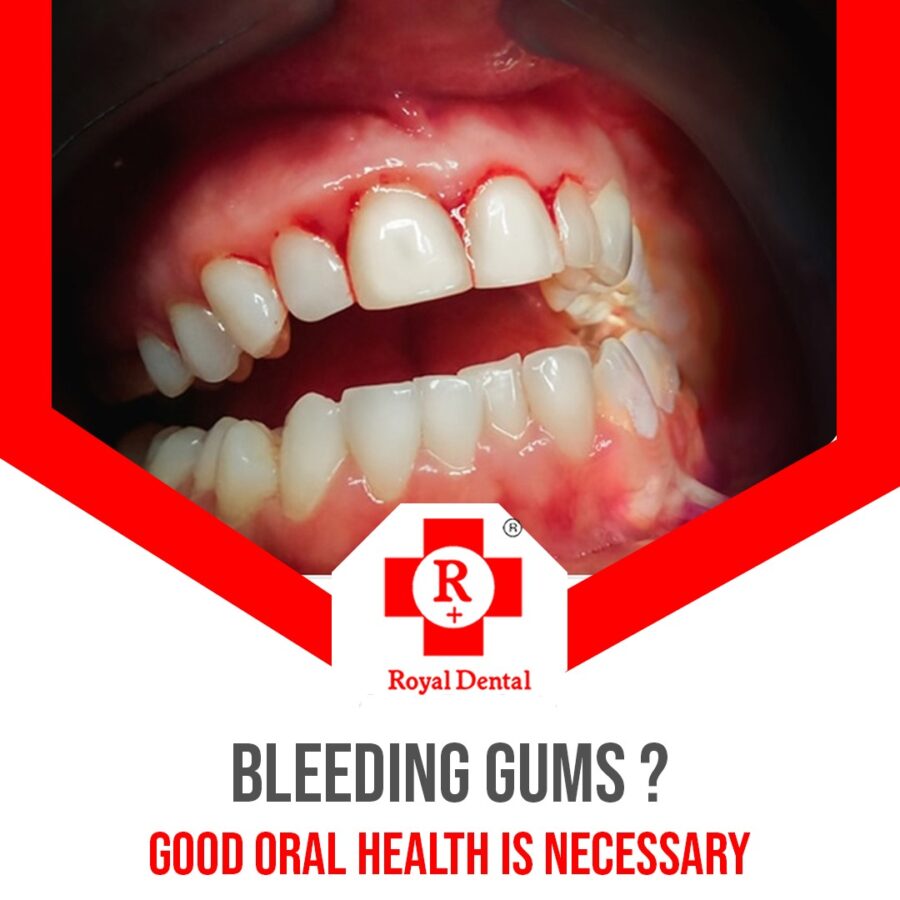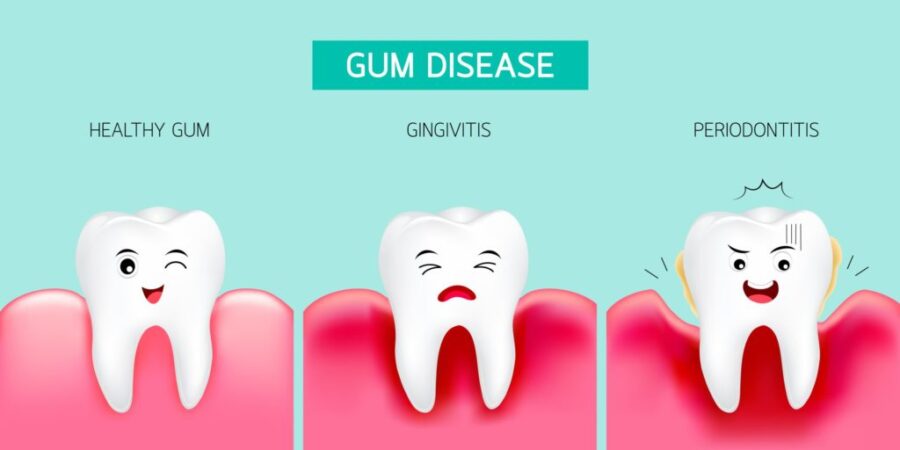Are you troubled by bleeding gums or non-healthy gums? Don’t worry, you’re not alone. Pyorrhea can be a common concern for many individuals, but understanding the underlying causes is crucial for effective treatment and prevention. In this informative article, we dive into the expertise of renowned dentist Dr. Chirag Chamria as he unravels the mystery behind bleeding gums. As a highly respected professional in the field, Dr. Chamria sheds light on the top five common causes of this oral health issue. From poor oral hygiene practices to gum disease and hormonal changes, he provides invaluable insights to help you identify the root cause of your bleeding gums. By unmasking the mystery, Dr. Chamria empowers you to take proactive steps toward achieving optimal oral health.
Common Causes of Bleeding Gums
#1: Medications
Certain medications, such as blood thinners and antiplatelet drugs, can increase the risk of bleeding gums. These medications are commonly prescribed to individuals with cardiovascular conditions to prevent blood clots. If you are taking any medications, it is important to inform your dentist so they can take appropriate precautions during dental procedures.
#2: Gum Disease
Gum disease, also known as periodontal disease, is another prevalent cause of bleeding gums. It occurs when the bacteria in plaque infect the gums, leading to inflammation and eventual damage to the gums and surrounding tissues. If left untreated, gum disease can progress and result in tooth loss. Proper oral hygiene, regular dental check-ups, and professional cleanings can help prevent and treat gum disease.

#3: Poor Oral Hygiene
One of the most common causes of bleeding gums is poor oral hygiene. Neglecting to properly brush and floss your teeth can lead to the buildup of plaque, which is a sticky film containing bacteria. Over time, plaque hardens into tartar, which irritates the gums and causes them to bleed. Regular brushing, flossing, and using a mouthwash can help remove plaque and prevent bleeding gums.
#4: Vitamin Deficiency
A lack of essential vitamins, particularly vitamin C and vitamin K, can contribute to bleeding gums. Vitamin C is necessary for the production of collagen, which helps maintain the integrity of the gums. Vitamin K plays a role in blood clotting, and a deficiency can lead to easy bleeding. Incorporating a balanced diet rich in fruits, vegetables, and other sources of vitamins can help prevent bleeding gums caused by nutritional deficiencies.

#5: Hormonal Changes
Hormonal changes, particularly during pregnancy and menopause, can cause an increase in blood flow to the gums, making them more sensitive and prone to bleeding. This is known as pregnancy gingivitis or menopausal gingivostomatitis. Maintaining good oral hygiene and regular dental check-ups are crucial during these periods to prevent and manage bleeding gums.
Importance of Oral Health
Maintaining good oral health is essential for overall well-being. Your mouth is a gateway to your body and can provide important clues about your health. Healthy gums play a vital role in supporting the teeth and preventing diseases such as gum infections and tooth loss. Pyorrhea can be an early sign of underlying oral health issues, and ignoring them can lead to more serious problems in the long run.
Signs and Symptoms of Bleeding Gums
- Gums that are red, swollen, or tender
- Gums that bleed during brushing or flossing
- Bad breath or a persistent bad taste in the mouth
- Receding gums or loose teeth
- Changes in the way your teeth fit together when you bite
Tips for Preventing Bleeding Gums
Practice good oral hygiene: Brush your teeth at least twice a day with a soft-bristled toothbrush and fluoride toothpaste. Don’t forget to floss daily and use a mouthwash to remove plaque and bacteria.
Use proper brushing technique: Angle your toothbrush towards the gum line and use gentle, circular motions to clean the teeth and gums. Avoid aggressive brushing, as it can damage the gums and cause bleeding.
Choose the right toothbrush: Opt for a soft-bristled toothbrush that is gentle on your gums. Replace your toothbrush every three to four months or sooner if the bristles become frayed.
Eat a balanced diet: Include a variety of fruits, vegetables, whole grains, lean proteins, and dairy products in your diet. Avoid excessive consumption of sugary and acidic foods, as they can contribute to gum disease.
Avoid tobacco products: Smoking and chewing tobacco can significantly increase the risk of gum disease and bleeding gums. Quitting tobacco can improve not only your oral health but also your overall health.
Manage stress: Stress can weaken the immune system and make you more susceptible to gum infections. Practice stress management techniques such as exercise, meditation, or engaging in hobbies to reduce stress levels.
Expert Advice from Dr. Chirag Chamria on Bleeding Gums
When to Consult a Dentist?
While occasional mild bleeding of the gums can be common, persistent or excessive bleeding should not be ignored. If your gums bleed regularly, even with gentle brushing or flossing, it is advisable to seek professional dental care. Additionally, if you experience other symptoms such as severe pain, swelling, or pus discharge from the gums, it is important to consult a dentist promptly.
Dr. Chirag Chamria, a renowned dentist with years of experience at Royal Dental Clinics, emphasizes the importance of early detection and prevention of bleeding gums. According to Dr. Chamria, regular dental check-ups are crucial for maintaining optimal oral health. He advises individuals to adopt a proactive approach by practicing good oral hygiene, eating a balanced diet, and seeking professional dental care when needed. Dr. Chamria also recommends using oral care products such as toothbrushes with soft bristles, fluoride toothpaste, and antibacterial mouthwash to maintain healthy gums.
Treatment Options for Bleeding Gums
The treatment for bleeding gums depends on the underlying cause. Dr. Chamria will assess your oral health and recommend appropriate treatment options. Some common treatments at Royal Dental Clinics include:
- Scaling and root planning: This deep cleaning procedure removes plaque and tartar from the teeth and below the gum line to treat gum disease.
- Antibacterial mouthwash: Your dentist may prescribe an antibacterial mouthwash to help control bacterial growth and reduce gum inflammation.
- Dental procedures: In more severe cases, surgical intervention may be required to treat gum disease and restore gum health.
Recommended Oral Care Products | Pyorrhea
When it comes to oral care products, choosing the right ones can make a significant difference in maintaining healthy gums. Dr. Chamria recommends the following products for optimal oral health:
Toothbrush: Opt for a toothbrush with soft bristles and a comfortable grip. Electric toothbrushes can also be effective in removing plaque and reducing gum inflammation.
Toothpaste: Look for toothpaste that contains fluoride and is specifically designed for gum health. Fluoride helps strengthen the teeth and prevent cavities, while gum-specific toothpaste can provide additional protection against gum disease.
Mouthwash: Consider using an antibacterial mouthwash that targets plaque and gum inflammation. Rinse your mouth with the mouthwash after brushing and flossing for added protection.
Conclusion
Bleeding gums can be a cause for concern, but with the right knowledge and guidance, you can take proactive steps towards maintaining healthy gums and a confident smile. By understanding the common causes of bleeding gums, recognizing the signs and symptoms, and following proper oral hygiene practices, you can prevent and manage this oral health issue effectively. Remember to consult a dentist for a thorough evaluation and personalized treatment plan. Take control of your oral health today and enjoy the benefits of healthy gums and a beautiful smile for years to come.
© All rights reserved by Royal Dental Implants Pvt Ltd
Issued in public interest






